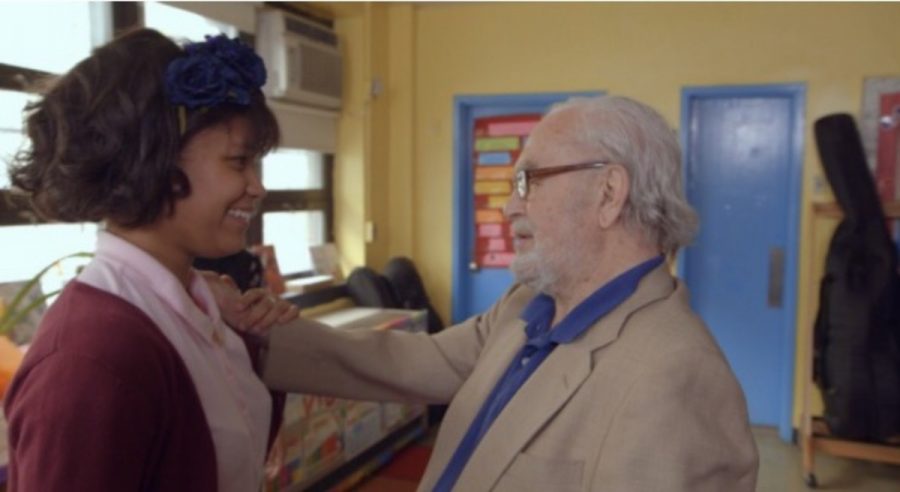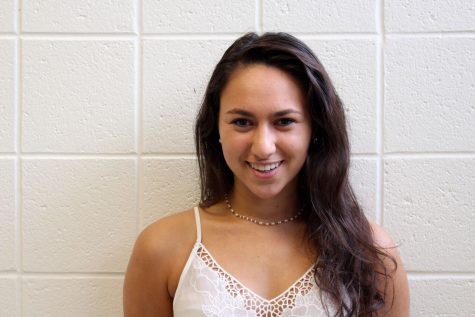Whitman alumna nominated for Academy Award
Brianna Perez brought Holocaust survivor Joe Feingold to her school to introduce the man who gave her the violin to her friends. Photo courtesy of Kahane Cooperman.
February 26, 2017
Two strangers meet. One an immigrant, the other a refugee. A violin brought them together but their friendship revealed how one small act can change two people’s lives forever. This true story is captured in the documentary “Joe’s Violin,” by director Kahane Cooperman (‘80).
Cooperman served as the first female editor-in-chief of the Black & White, which sparked her interest in collaborative working, ingenuity and creative thinking, she said. After high school, she attended film school at Columbia University, worked at The Daily Show with Jon Stewart and went on to win 11 Emmy Awards. “Joe’s Violin” is nominated for a 2017 Academy Award in the Documentary Short subject.
“I made my first documentary [at Columbia] and never looked back after that,” Cooperman said.
Cooperman sought to reconnect with her passion for documentary storytelling in her most recent film detailing the human experience and the connection that can be formed between strangers, she said.
“Joe’s Violin” tells the true story of a bond forged through a violin between Joe Feingold, a 91-year-old Holocaust survivor from Warsaw, Poland, and Brianna Perez, a 12-year-old Dominican-American girl who lives in the poorest district of the Bronx.
Cooperman first came up with the idea for the story when she heard a radio commercial about an instrument drive taking place for underprivileged schools. The ad mentioned donations that were already made, including a violin from a 91-year old Holocaust survivor.
“I just wondered if that violin had a story and just kept driving,” Cooperman said. “Then at the stop light, I wondered if the kid who got it would ever learn what that story was even though I didn’t know if it had one. And at the next stoplight, I wondered if that kid had a story, and basically by the time I pulled into the parking lot, the idea of two strangers being connected by a violin was really compelling to me.”
In the end it’s not about a violin at all. It’s about connections between strangers, the fact that a small act can have a great impact.
— director Kahane Cooperman (‘80)While the title of the piece highlights the violin that was exchanged between the refugee and the immigrant, the story is not meant to discuss the transaction of the object.
“In the end, it’s not about a violin at all,” Cooperman said. “It’s about connections between strangers, the fact that a small act can have a great impact.”
Members of the Whitman community said they view Cooperman’s achievement as inspiring, highlighting how it encourages them to carry out their dreams.
“It’s amazing to me that someone else from our school got so far,” movie making club founder Saul Singleton said. “It inspires me to make something just as great. The world is so competitive, and she made it, so I can.”
With her success Cooperman hopes that she is able to inspire others to act on their ideas.
“Everyone has a million little ideas a day and don’t act on them,” Cooperman said. “If you have an inkling of an idea or that there may be more to something go for it.”
Cooperman said she believes that this film has retaught her a valuable lesson.
“This has confirmed my belief that everyone has a story,” she said. “If we just take a moment to think about it, we can probably find that we have more in common with strangers than not.”
The film may be watched online for free here










